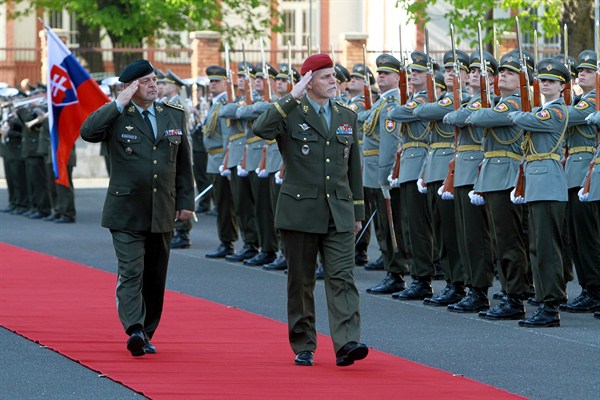Editor’s Note: This article is part of an ongoing WPR series about NATO members’ contributions to and relationships with the alliance.
Anti-NATO voices within Slovakia are becoming more vocal, spurred in part by the public’s susceptibility to pro-Russian propaganda and suspicions of the U.S. Yet Slovakia, a NATO member since 2004, remains a committed member of the alliance, and officials see clear benefits to the security assurance NATO provides as well as training that comes with participating in NATO missions. In an email interview, Dušan Fischer, an alumni scholar at the George C. Marshall European Center for Security Studies and an analyst with the Slovak Foreign Policy Association, explains how Slovakia’s relationship with NATO has evolved.
WPR: What is Slovakia’s level of defense preparedness, what are its major security threats, and how has it benefited from being a member of NATO?

